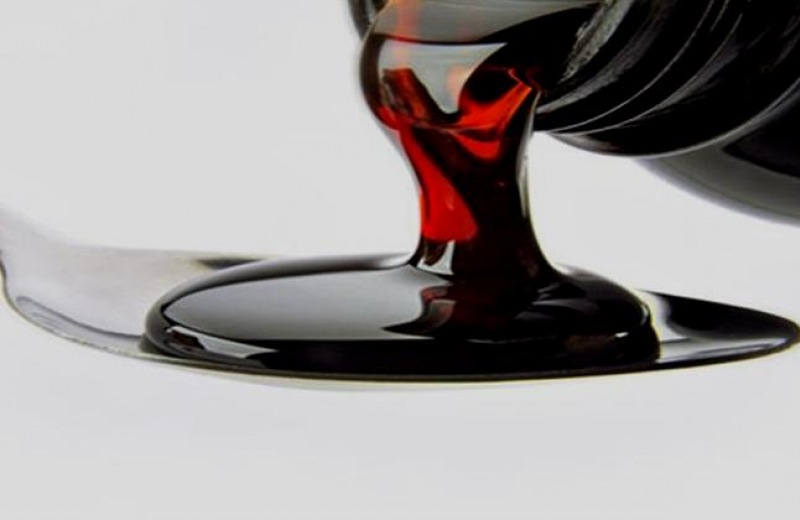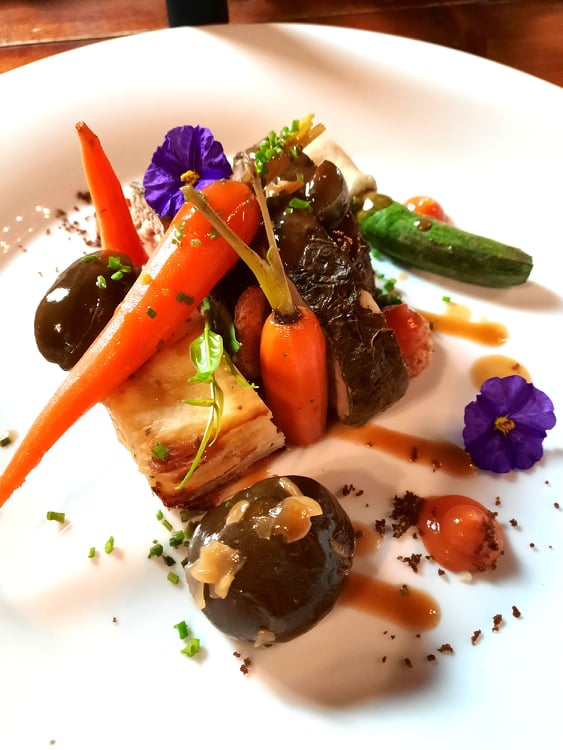Greece has a lot of non-standard seasonings, sauces and syrups that make national dishes “unforgettable”. This applies to both salads and meat culinary delights.
Guests who come to our country are constantly amazed – it seems that the ingredients are well known to everyone, but the “taste is specific”, as Raikin once said.
We will tell you about one of these “secrets” today. This is petimezi (Πετιμέζι) – a thick syrup that is obtained from the boiling of grape juice. It is used as a sweetener for various foods and drinks, and has health benefits. It is rich in vitamin B6, potassium, magnesium, manganese and iron.
This is a thick concentrated juice with a pleasant sweetish and slightly sour taste, which is obtained by boiling grape must (without prior fermentation). It is boiled for several hours until the wort becomes dark and syrupy, and then “stand” for a long time.
Petimezi is one of the sweeteners, along with honey, and has been used since antiquity as an invigorating drink (in diluted form), a preservative and a sugar substitute. Its taste is not only sweet, but also much more complex, with a slightly bitter undertone. (something like pomegranate syrup called Narsharab (Azeri Narsərab), an Azerbaijani spice widely used in oriental cuisine and obtained by thickening pomegranate juice). It can be a stretch to say that the analogue of petimezi is rosehip syrup, familiar to us from “Soviet” childhood.

Petimezi should not be confused with must. Must is the condensed juice (Μούστος) obtained by pressing and cooking grapes. without boiling. Boiled wort is also called “sliced” (κομμένος μούστος). Petimezi available in various densities. The syrup was traditionally used by the Greeks as well as by the ancient Romans (the latter used it in cooking under the names sapa, defrutum and carenum).
Commonly used:
- take a spoonful of syrup in the morning for an immediate burst of energy,
- for marinades in cooking (for meat and fish),
- along with balsamic vinegar in sweet and sour salad dressings,
- in confectionery,
- as a sweetener for drinks, cocktails,
- as a dressing for yogurt
- like syrup for homemade pancakes.
Petimezi is rich in iron and calcium. Does not contain preservatives, dyes, sugar. Keeps out of the refrigerator for a long time. It contains most of the healing components of grapes.
Nutritional value (in % per 100 g):
- Carbohydrates 80.9
- Fats 0.4
- Proteins 0.9
- Calories 33
- Calcium 74 mg
- Phosphorus 40 mg
- Iron 1.2 mg.
In Greek cuisine, it is used in some traditional local dishes. Most of all, the syrup is “honored” in Crete, Zakynthos and other parts of Greece. It is also used in sweets in baking, as well as a sweet glaze for some dishes.
In modern cuisine, this ancient sweetener is experiencing a renaissance of sorts. Today, its use goes beyond the sphere of confectionery. The syrup is added to meat, fish and vegetable dishes, sauces and dressings to satisfy the demands of modern Greek gourmets.
Petimezi also acts as a preservative, it is added to eggplant and pumpkin (zucchini) caviar.
Petimezi is poured over freshly baked bread and chaletia (pancakes made from bobota – sweet flour porridge – an old dish from the island of Samos). The syrup is found in small vegetable pies from Tinos, such as thesclopita, as well as in more traditional dishes (such as the sweet and sour fish dish).

Today, Petimezi is used throughout Greece for both home use and industrial cooking. Sold worldwide under various brand names. Syrups come in light and dark colors, depending on the variety of grapes used, as well as how they are boiled (in vats in large quantities to make them dark, or little by little in a saucepan to make them light).







More Stories
Macedonian halva celebrates 100th anniversary
Greek "METAXA" among the most fashionable brandies according to Drinks International Report 2024
10 special and very tasty Greek cheeses